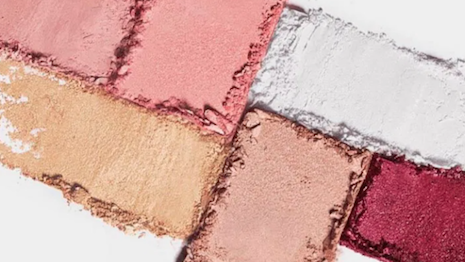 The beauty industry turns to digital platforms to deliver meaningful messaging. Image credit: Glossy
The beauty industry turns to digital platforms to deliver meaningful messaging. Image credit: Glossy
Beauty brands are leveraging new and evolving digital platforms for authentic ways to engage consumers, according to industry experts speaking at the Launchmetrics Performance digital summit.
The beauty industry is continuing on an upward trajectory, and as it evolves brands are getting more experimental with the channels they use to reach consumers. On Nov. 5, panelists Priya Rao from Glossy, Antonia Baildam of TikTok, Rae Giroon of Tatcha and Michael Benson of Church & Dwight discussed how new channels are shaping the beauty industry.
“When we start looking at the different channels, each platform works differently,” Mr. Benson said. “We try to optimize each of our messages across the different platforms to ensure that we have the right message in the right place.
“Consumers are going to each of those platforms for particular experiences,” he said. “As a brand, you must recognize what consumers are looking for and ensure that you’re delivering in terms of your creativity.”
Digital beauty
Panelists discussed trends in the beauty industry and emphasized how COVID-19 has forced brands to alter their digital marketing strategies in order to meet the growing demands of their consumers.
“A trend I’ve seen most over the last few years is this empowered consumer: a consumer that wants to delve into the efficacy of ingredients and wants to understand what ingredients do,” Ms. Baildam said. “There’s a huge knowledge exchange going on and that’s something we’ve seen a huge spike in on TikTok.”
“We’ve really seen this edutainment niche come out on the platform,” she said. “The consumer is demanding more expertise and knowledge.”
Consumers, especially Gen Z and millennials, are savvier than ever. Due to the amount of information they consume every day, they have the power to hold brands and products to significantly higher standards.
“Consumers are facing more choices than ever and are more informed than ever,” Mr. Benson said. “Brands are not the authorities anymore—it’s been democratized.”
 Brands look to platforms like TikTok to engage younger consumers. Image credit: Glossy
Brands look to platforms like TikTok to engage younger consumers. Image credit: Glossy
Through rising digital platforms like TikTok, consumers are looking to engage with the brands they love or utilize the platform to discover and experiment with new brands.
“Customers are in a discovery mode and come to TikTok to discover new brands,” Ms. Baildam said. “More than anything else, we are a platform for discovery and experimentation.”
In addition to demanding more information about products, consumers now have a heightened expectation for social, political and environmental awareness.
“Gen Z consumers are activists at the core — they believe brands should practice what they preach,” Ms. Baildam said. “It’s not about being tokenistic, it’s about living those values.”
Consumers have stopped looking towards brands themselves and have focused their attention on social media, influencers and their peers, shifting the beauty industry completely.
“We’ve really changed how beauty is portrayed,” Ms. Baildam said. “There is going to be so much for democratization of beauty.
“It will no longer be about archaic beauty standards,” she said. “It’s about authenticity, self-expression and creativity and that will become commonplace going forward, which is a really positive thing for brands and consumers alike.”
Beauty standards are changing
Since the beginning of the global pandemic, industry experts have recognized a significant shift in the way consumers are approaching beauty. They have become more focused on beauty as self-care and look for authentic messaging from brands.
Beauty brand Estée Lauder tapped American singer and actor Danielle Brooks to introduce the label’s night care serum in a campaign emphasizing self-care (see story).
French fashion house Christian Dior took beauty more than skin deep in a campaign centered on physical and mental health. To promote its Capture Totale C.E.L.L. Energy, Dior tapped supermodel Gisele Bündchen to share her lessons about achieving a sense of well-being that extends to conscious skincare (see story).
“Consumers want realness,” said Tatcha’s Ms. Giroon. “They want humanity behind the brand and are looking for less product sponsorship and more of a community.”